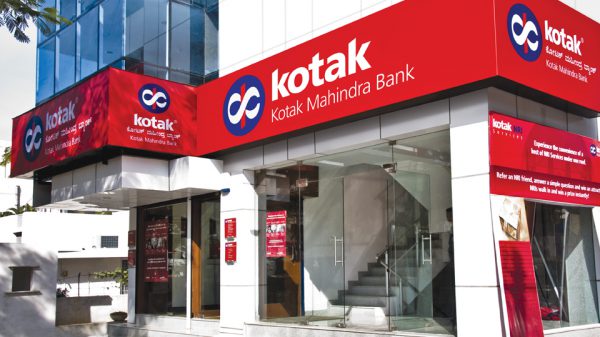by Vipul Kharbanda

Given the transactions occurring in online marketplaces – a large number of them between retailers and domestic consumers, are there any specific laws out there protecting the interests of consumers online?
Apart from the Information Technology Act, 2000 and various circulars by the Reserve Bank of India regarding online banking and money transfer activities which are more generic in nature trying to secure the online space as a whole, there are no specific laws that seek to protect consumers in the online space. However, that does not necessarily mean that the consumers are left without any recourse and in this post we shall examine whether it is possible to use the Consumer Protection Act, 1986 to protect consumer rights in the online environment as well.
The Consumer Protection Act, 1986 (“COPRA”) was enacted with the purpose of empowering consumers to take on the might of large corporations and preventing unscrupulous businessmen from taking undue advantage of the weak position which consumers are inherently placed in under the archaic Indian judicial system. It set up special tribunals, simpler procedures and enacted special provisions to help consumers get a better bargaining position vis-à-vis manufacturers and retailers, etc. However, this law was enacted more than a quarter of a century ago and it is not entirely geared towards protecting consumer rights in the digital era. However, that does not mean it is entirely toothless in the online environment although it certainly needs some major provisions to come to grasp with the special circumstances and practices of the online marketplace, as the rest of the discussion will demonstrate.
For any transaction to come under the purview of COPRA, it should have the following three essential requirements:
- There should be a ‘good’ or ‘service’ sold or provided to a consumer;
- Such good or service must be ‘sold’ i.e. there must be a ‘sale’;
- There should be a ‘defect’ in the good or ‘deficiency’ in the service;
We will now examine different types of e-commerce transactions and discuss whether they fulfill the requirements given above and therefore are amenable to the jurisdiction of COPRA.
There should be a ‘good’ or ‘service’
Since a book or a mobile phone is considered as a ‘good’ then it will always be considered as a ‘good’ irrespective of it being bought from a physical shop or an online retailer. However, the question becomes complex when dealing with digital items such as mp3 files and software programmes. The General Clauses Act, 1897 states that all property which is not immovable property is considered as movable property. Since immovable property is defined as land and things attached to the land, therefore it is pretty clear that ‘computer software’ would in all likelihood be considered as movable property. Whether such movable property can be considered as a ‘good’ or not is a question which is yet to be tested in the courts of law in India, however it must be mentioned that in the context of the Sales Tax Act, the Supreme Court of India has held canned software to be a ‘good’. Laying down a test for determining whether a property is a ‘good’ or not, the Supreme Court in that case laid down the following test:
“A ‘goods’ may be a tangible property or an intangible one. It would become goods provided it has the attributes thereof having regard to (a) its utility; (b) capable of being bought and sold; and (c) capable of transmitted, transferred, delivered, stored and possessed. If a software whether customized or non-customized satisfies these attributes, the same would be goods.”
However, it may not be accepted by a court deciding a case on COPRA. This is one issue which could and should be addressed under Indian laws to ensure that the large numbers of Indian consumers who buy items in the online marketplace are not left without the protection of the COPRA.
There must be a “Sale” of the good or service
This question again can be simple when asked in relation to sale of physical goods using the internet but may not be so with digital goods. When a physical item is purchased using the internet, a sale may be said to have occurred when the ownership of the good passes from the online retailer to the consumer and the payment and delivery are complete. However, the question whether sale of software in an online environment would actually constitute a ‘sale’ is questionable. A huge problem in labeling online software purchases as a ‘sale’ is that most of these ‘sales’ are made in the form of a license. The manufacturers or retailers would argue that such an online purchase is not really a sale since the consumer usually only gets a license to use the product under strict conditions and does not buy the product as an owner.
The counter argument is that most websites advertise these products as an outside sale. In fact in a number of cases you can actually buy the file containing the software without ever being shown the contractual terms of the agreement. These terms usually specify that you are only getting a license to use the product and may not have the right to resell or lend the product to others, rights which a traditional buyer of a product enjoys under law.
This issue was also discussed by a Full Bench of the Supreme Court of India in the case of Tata Consultancy Services v. State of Andhra Pradesh, which ultimately held that the ‘sale’ of canned software would be a sale of goods and therefore liable to be taxed under the Sales Tax Act. This decision was given in the context of the Sales Tax Act, but it could be argued that since tax statues are anyways supposed to be interpreted strictly and beneficial statutes such as the COPRA are required to be interpreted broadly, therefore it is possible that such a ‘license’ could be considered as a ‘sale’.
Here again we see that although there might be arguments which could be made to justify such licences for computer software as a ‘sale’, however it is still an untested issue and the COPRA certainly needs to take these issues into account if we want to protect the rights of the ever growing number of online consumers.
There should be a “defect” in the goods
If I order a pair of shoes from flpikart.com and the shoes arrive with one of the soles torn off, it’s a pretty straightforward case of there being a defect. Similarly, if I buy a software from a manufacturer for my personal use and the file has a bug in it, it can fairly easily be considered as a defect.
What if we argue that stringent Digital Rights Management techniques by some online retailers are actually a defect in the goods since they do give the consumer all the rights that a buyer of goods would traditionally have. For example, if I buy an e-book with DRMs which restrict lending and on-selling, then two of my rights as a traditional book buyer are straightaway rescinded.
If an article bought has any fault, imperfection or shortcoming in the quality, then it would be considered as a defective good. An e-book with DRMs may also let a consumer read its contents but that may not be the only criteria to determine whether an item is defective or not. Using the traditional definition of a ‘buyer’, we can argue that a traditional buyer commonly has rights such as the right to resale, the right to make copies for personal use, the right to lend, the right to gift, etc., which may not exist in an e-book with DRMs. Thus, an argument could be made that such measures constitute a ‘defect’ in the goods under the COPRA.
Again, this is only an argument and it is entirely possible that a court of law may reject such an argument, especially in light of the fact that the consumer has entered into a license agreement while completing the transaction which specifically grants the consumer only specific and limited rights in regard to the item being purchased. A possible counter argument could be that the agreement is generally long and verbose and is only presented to the consumer towards the end of the transaction when the consumer generally does not have the time to read it. Further, the consumer can hardly negotiate the terms of the contract. This is why in common law jurisdictions the courts have laid down certain principles or extra conditions which a standard form of contract has to abide by for it to be enforceable viz.,:
- Sufficient notice: This principle requires that the major and specially the unusual terms in a contract should be displayed in a sufficiently highlighted manner so that a reasonable consumer is not likely to miss these unusual terms.
- Fundamental breach of contract: If the contract is so drafted that it would impose additional obligations on the consumer or restrict the liability and obligations of the seller in such a way that it would result in breaching any of the fundamental or main terms or obligations that one expects in such a contract, then such a contract may not be enforceable.
- Exclusion of unreasonable terms: Another type of protection that is available to consumers is the principle which seeks to exclude unreasonable terms from a contract i.e. a term which would defeat the very purpose of the contract or if it is repugnant to the public policy.
Relying on the above principles of standard form contracts, it is possible to at least argue that highly strict and limiting terms which are put into a long verbose standard form contract which backs the Technology Protection Measures on a protected software may not be entirely enforceable, in which case the alleged consent of the consumer for such DRMs gets negated and the software with all its DRM limitations could be considered as ‘defective’.
A version of this post was published on Centre for Internet & Society, India website
(c) Centre for Internet and Society 2013
The Centre for Internet and Society is a non-profit research organization that works on policy issues relating to freedom of expression, privacy, accessibility for persons with disabilities, access to knowledge and IPR reform, and openness (including open government, FOSS, open standards, etc.), and engages in academic research on digital natives and digital humanities.




























